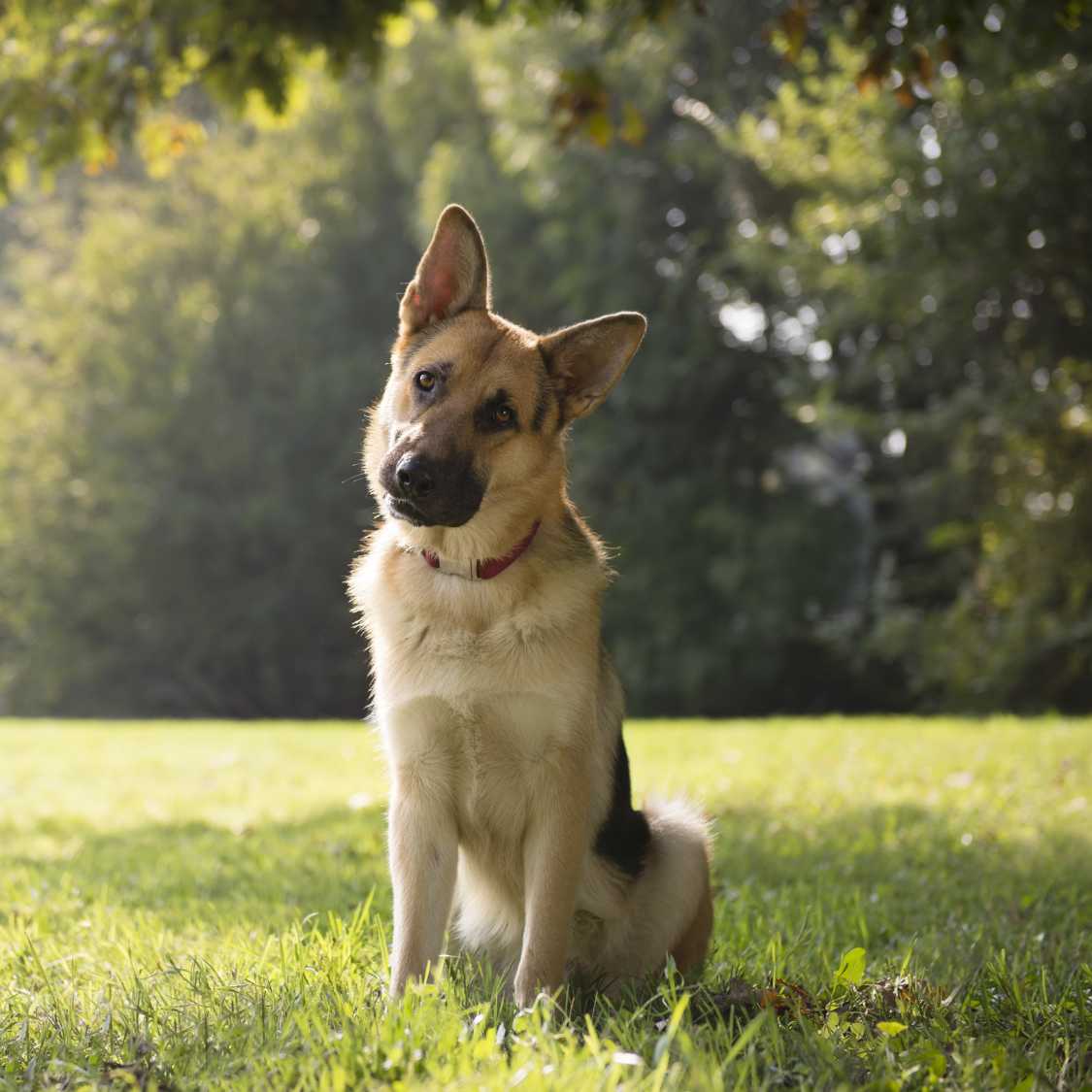Few breeds match the intelligence, loyalty, and versatility of the German Shepherds. Whether you’re contemplating bringing one into your home or already cherish one as part of your family, this guide delves into the essentials for ensuring a vibrant and fulfilling life for your German Shepherd. From their fascinating history to practical tips on their care, this comprehensive guide has it all.
German Shepherd History and Origins

The German Shepherds breed hails from Germany, born out of a vision by Captain Max von Stephanitz in the late 1800s. Von Stephanitz sought to create the ultimate herding dog, merging various herding breeds to produce a dog with unmatched intelligence, agility, and loyalty. The first German Shepherd, Horand von Grafrath, set the standard for the breed. Initially celebrated for herding, their utility in police and military roles soon became evident, earning them a global reputation as one of the most versatile and reliable working dogs. Recognized by the American Kennel Club in 1908, German Shepherds continue to be celebrated for their unwavering dedication and adaptability.
German Shepherd Physical Characteristics
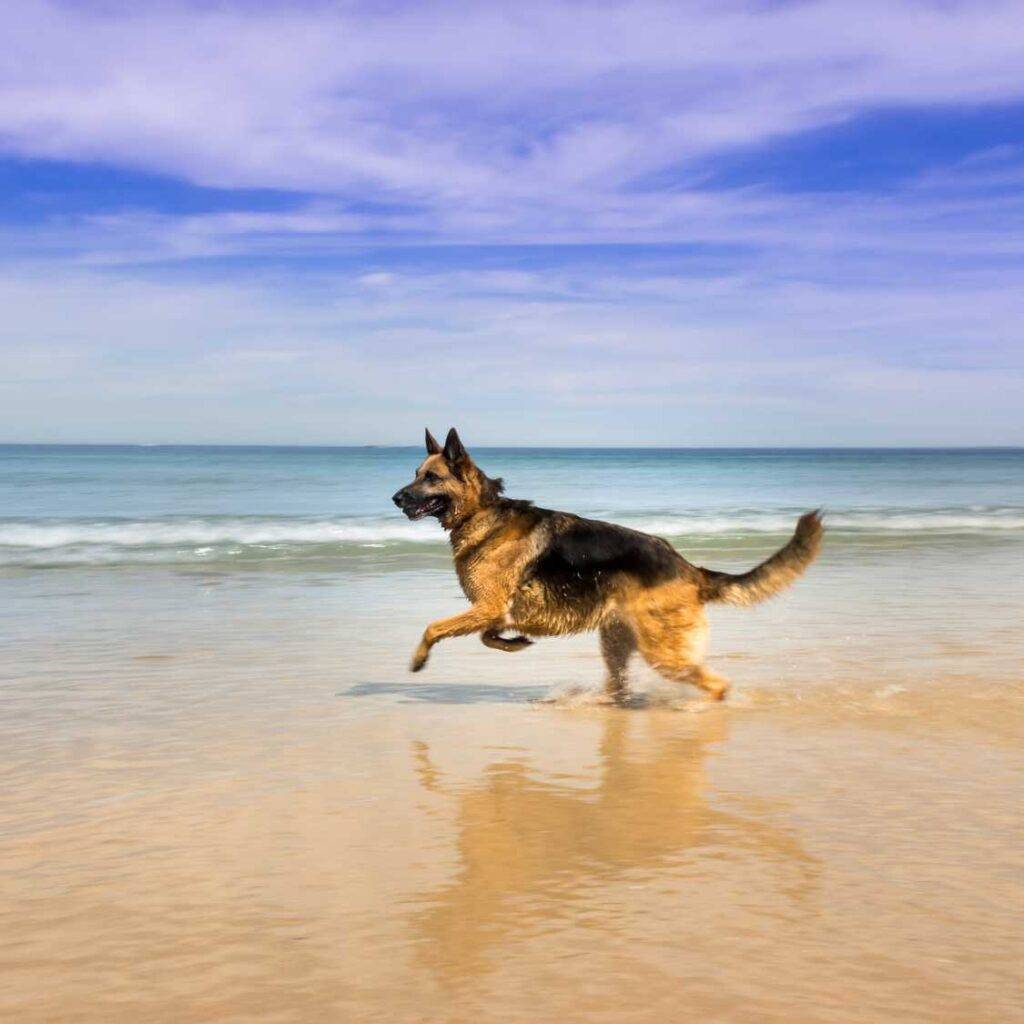
German Shepherds are large, well-muscled dogs known for their striking appearance and noble stature. Males typically weigh between 65-90 pounds and stand 24-26 inches tall, while females weigh 50-70 pounds and stand 22-24 inches tall. Their double coat is dense and weather-resistant, with colors ranging from classic black and tan to sable, all-black, and the rarer liver or blue hues. They have a distinct, confident gait and expressive, almond-shaped eyes that reflect their keen intelligence. The breed’s hallmark is its wolf-like appearance, which, combined with its strong and agile build, makes it both imposing and beautiful.
German Shepherd Personality and Temperament
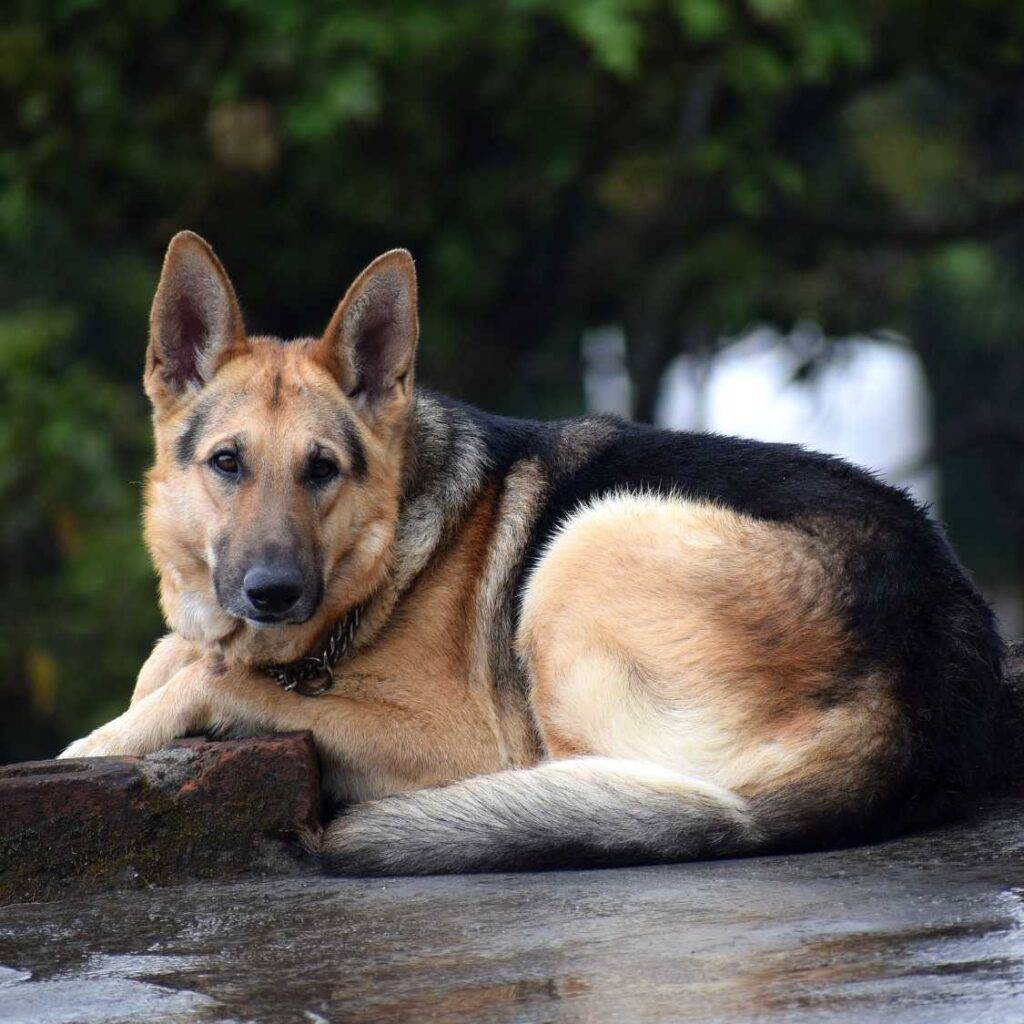
The German Shepherd is known for its loyalty, courage, and unwavering dedication to its family. They are naturally protective, making them excellent guard dogs, yet they are gentle and affectionate with their loved ones. Known for their sharp minds, German Shepherds excel in obedience training and various canine sports. They thrive on challenges and tasks, making them ideal for roles that require problem-solving and quick thinking. Their temperament combines a blend of curiosity and caution, making them excellent companions for both protection and family life.
German Shepherd Health and Lifespan
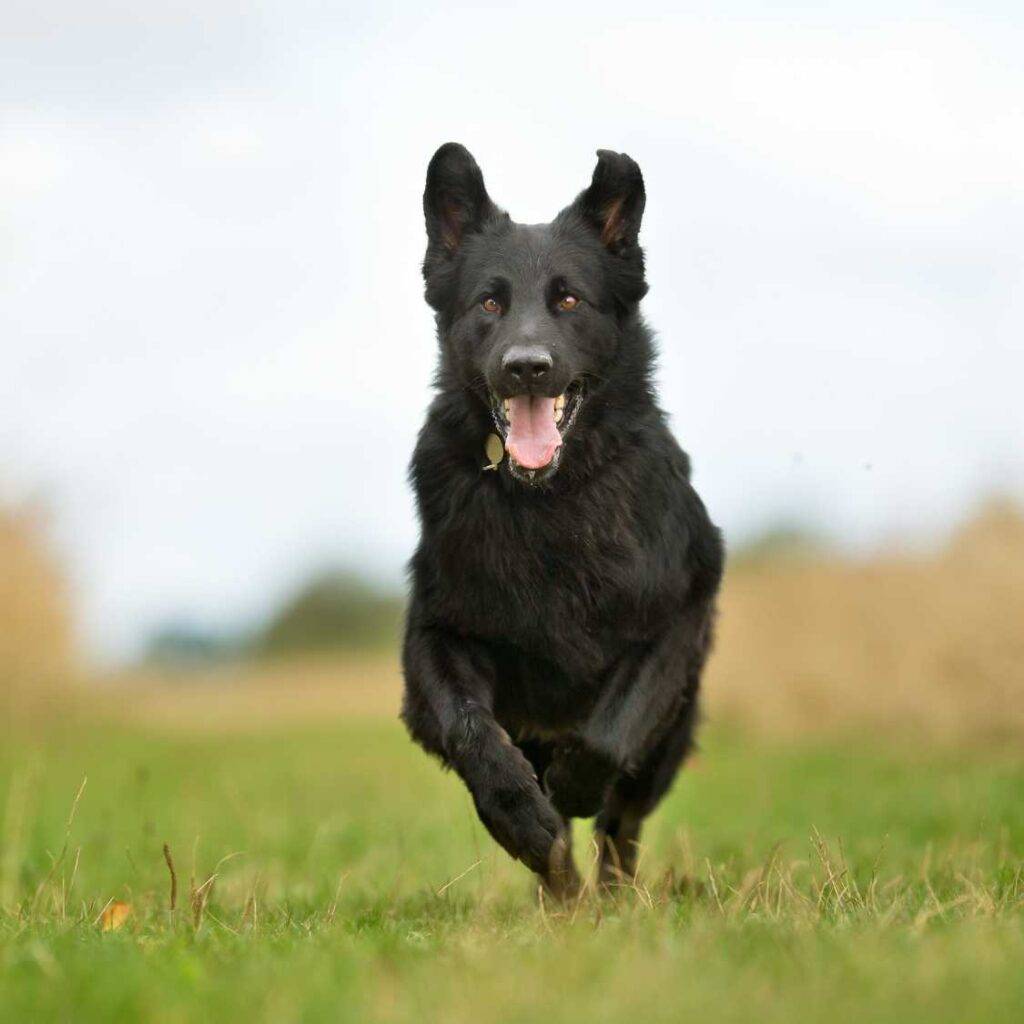
While German Shepherds are robust and generally healthy, they are predisposed to certain health conditions. Common concerns include:
- Hip and Elbow Dysplasia: These genetic conditions can lead to arthritis and mobility issues if not managed properly.
- Degenerative Myelopathy: A progressive spinal cord disease affecting coordination and strength.
- Exocrine Pancreatic Insufficiency (EPI): A condition where the pancreas fails to produce essential digestive enzymes.
- Bloat (Gastric Dilatation-Volvulus): A serious condition where the stomach twists, requiring immediate veterinary attention.
Regular check-ups, a nutritious diet, and consistent exercise are pivotal in managing these risks. Genetic screening and early intervention can greatly enhance their quality of life, allowing them to thrive well into their senior years.
Dietary Needs For German Shepherd

German Shepherd puppies require a nutrient-rich diet to support their rapid growth and development. High-quality puppy food, fed three to four times daily until six months old, is essential. As they mature, feeding can be reduced to twice daily.
Adults need a balanced diet tailored to their activity level. Proteins, carbohydrates, fats, vitamins, and minerals should all be included. Overfeeding can lead to obesity and other health problems, so portion control is crucial. The average German Shepherd needs about 1,500 to 2,100 calories per day. Some may have dietary sensitivities; common allergens include beef, chicken, and grains. Observing their reaction to different foods and consulting a veterinarian for tailored dietary advice is recommended.
German Shepherd Exercise and Physical Activity Needs

German Shepherds are high-energy dogs that require regular physical and mental stimulation. Daily exercise is crucial to prevent boredom and destructive behaviors. They enjoy activities such as:
- Long Walks and Runs: Ideal for maintaining cardiovascular health and muscle tone.
- Hiking: Great for exploring new environments and providing mental stimulation.
- Fetch and Tug-of-War: Excellent for burning energy and strengthening the bond with their owners.
- Agility Training: Combines physical exercise with mental challenges, perfect for their intelligent nature.
- Swimming: A low-impact exercise that’s easy on the joints and enjoyable for many Shepherds.
At least one to two hours of exercise per day is recommended, divided into multiple sessions. Engaging them in activities like obedience training, agility competitions, and herding trials can provide both physical and mental stimulation, keeping them happy and well-balanced.
German Shepherd Grooming and Maintenance
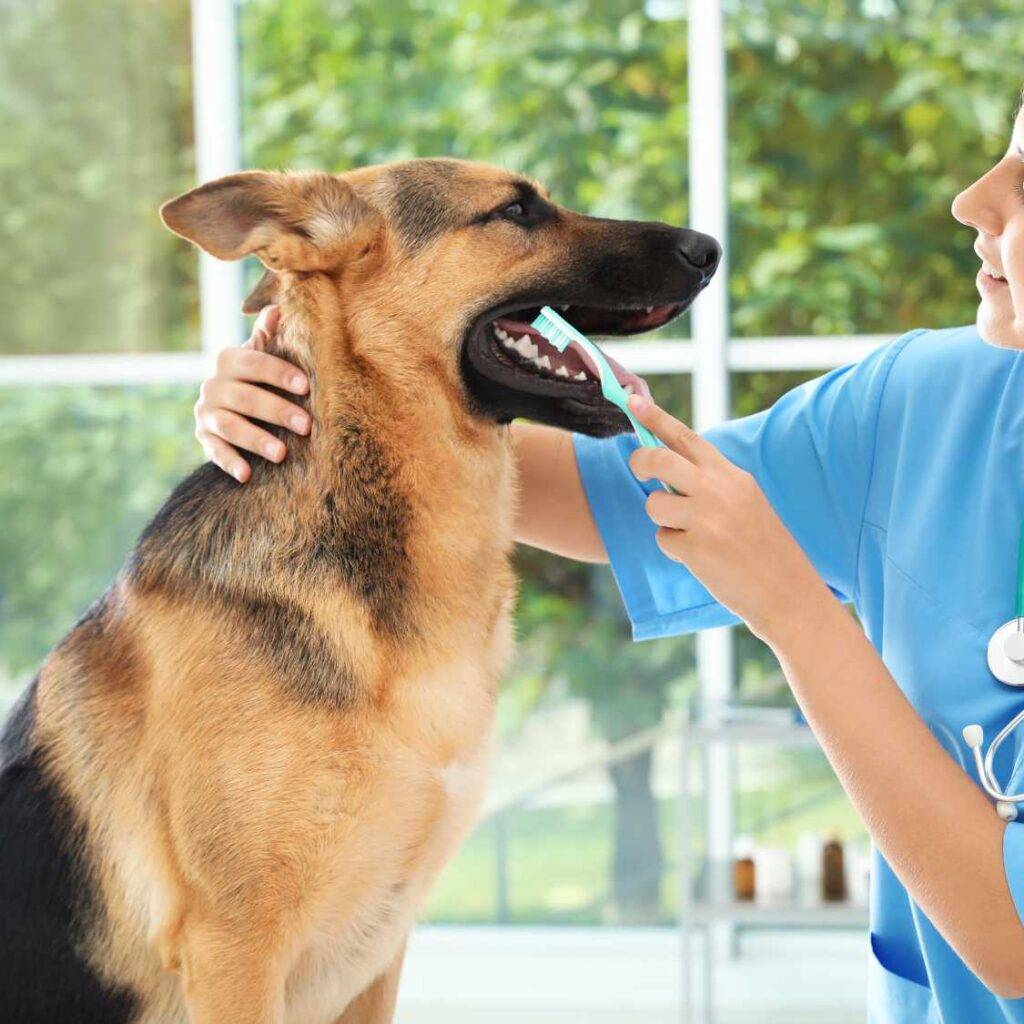
German Shepherd double coats require regular grooming to stay healthy and look their best. Brush their coat at least twice a week to remove loose hair and prevent matting, with more frequent brushing during shedding seasons (spring and fall).
Bathe them as needed, using a mild dog shampoo to avoid stripping their coat’s natural oils. Regular grooming also includes:
- Nail Trimming: Prevents overgrowth and discomfort.
- Ear Cleaning: Reduces the risk of infections.
- Dental Care: Essential to prevent dental disease and bad breath. Regular brushing and dental chews can help maintain oral health.
German Shepherd Environment and Living Conditions
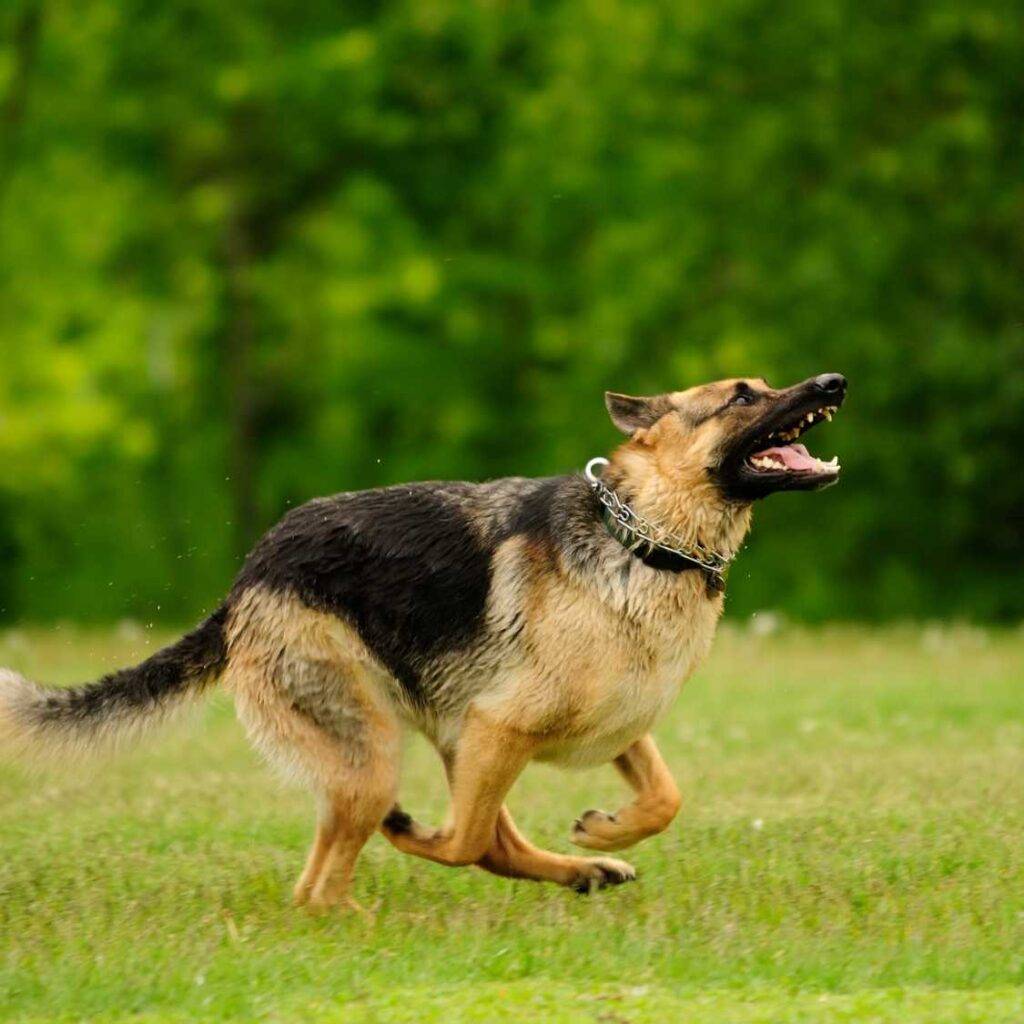
German Shepherds are adaptable but thrive in homes with ample space to roam and play. They prefer environments where they can stay close to their family, as they can develop separation anxiety if left alone for extended periods.
- While they can adapt to apartment living with sufficient exercise, suburban and rural settings with access to outdoor space are ideal. Ensuring they have a secure, fenced yard to explore can provide them with the physical activity they need.
German Shepherd Suitability for Families

German Shepherds are known for their loyalty and protective instincts, making them excellent family pets. They form strong bonds with their human family and are particularly good with children. Their patience and gentle nature make them trustworthy companions, but it’s important to supervise interactions with young children to ensure mutual respect and safety.
- Their natural guarding instincts mean they take their role as protectors seriously, often forming a protective barrier around their loved ones. Proper socialization from a young age ensures they distinguish between friendly visitors and potential threats.
German Shepherd Training and Socialization
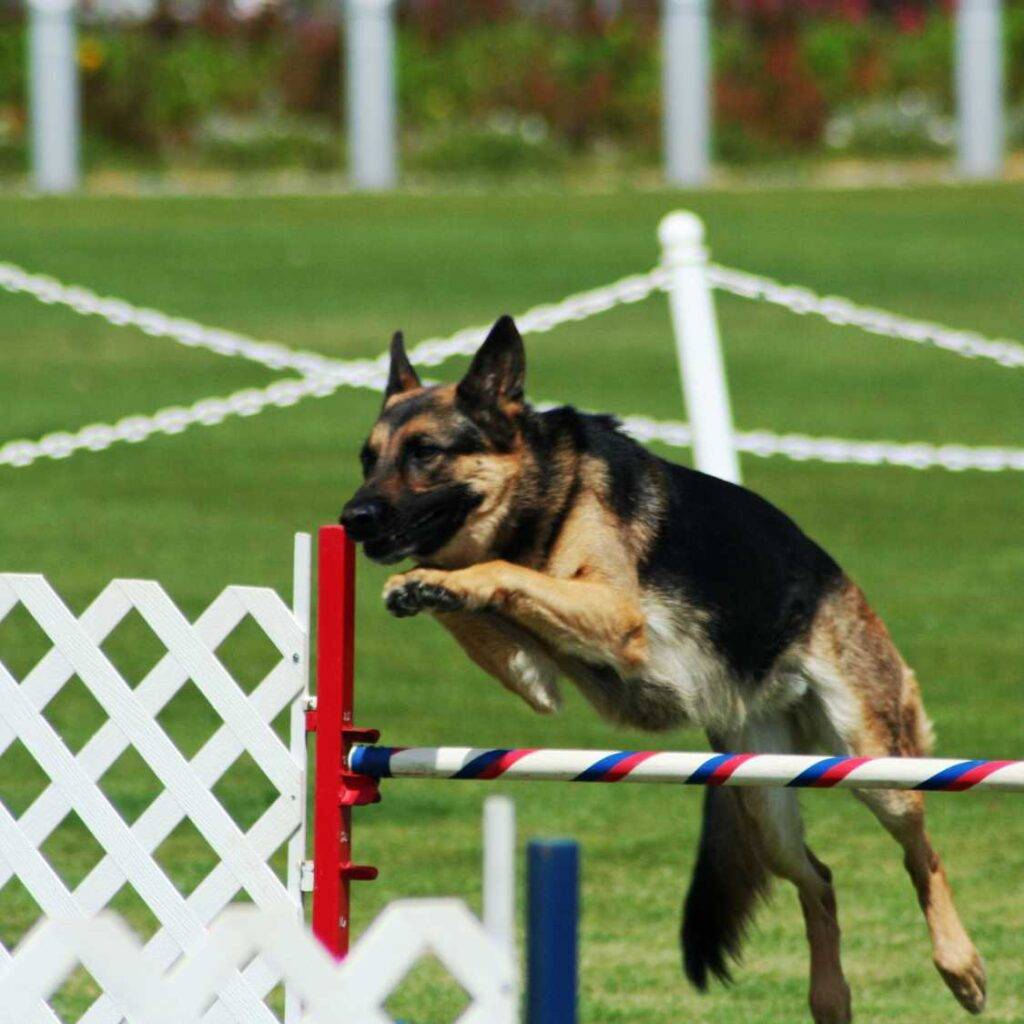
German Shepherds excel in training due to their intelligence and eagerness to please. Start training and socialization early to cultivate a well-mannered and confident dog. Basic commands like sit, stay, come, and heel are essential foundations.
- Use positive reinforcement techniques, such as treats and praise, to motivate them. Consistency and patience are key. Advanced training opportunities, including agility, obedience trials, and protection work, can further stimulate their minds and bodies, reinforcing their training and strengthening their bond.
German Shepherd As Working Dog
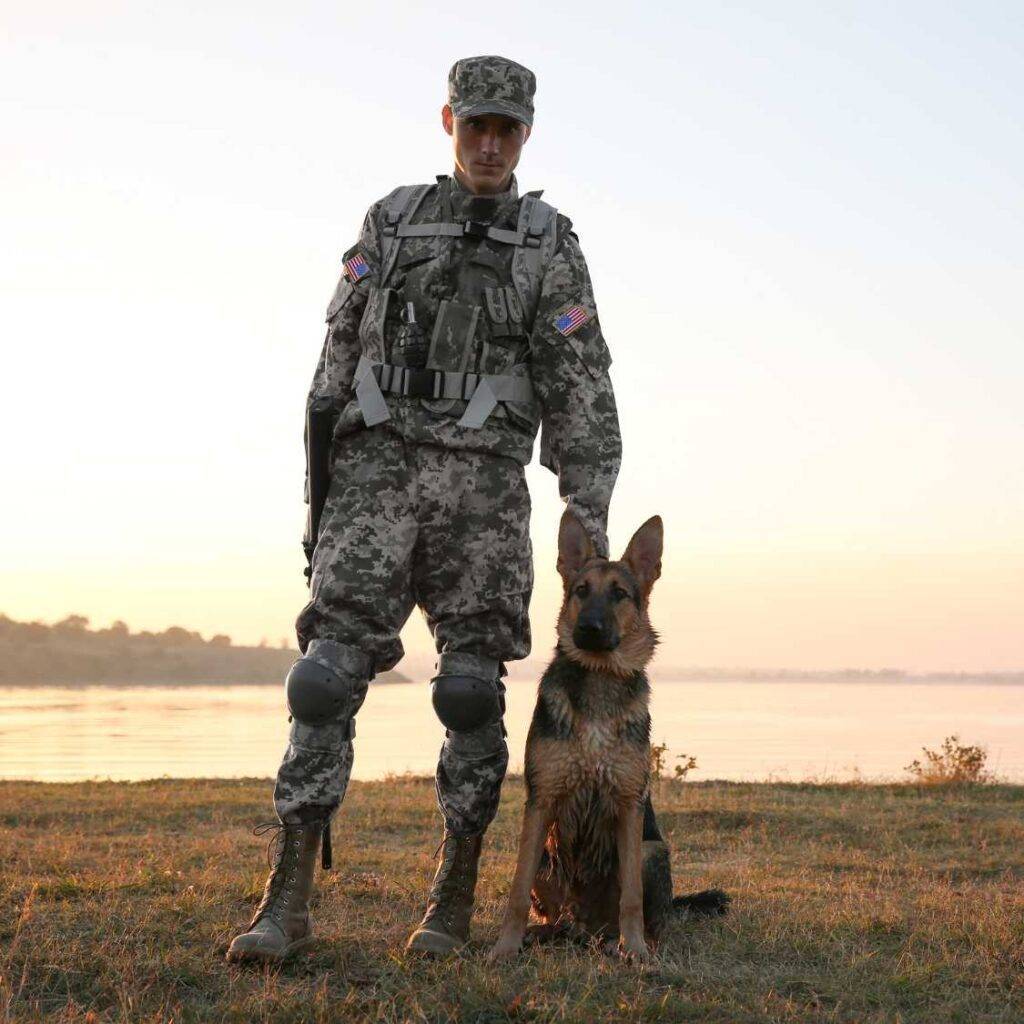
German Shepherds are renowned for their versatility in various working roles. Their intelligence, strength, and trainability make them ideal for:
- Police and Military Work: Used for tracking, apprehending suspects, and detecting drugs or explosives.
- Search and Rescue: Their keen sense of smell and determination make them invaluable in locating missing persons.
- Service Dogs: Providing assistance to individuals with disabilities, including guiding the visually impaired and offering mobility support.
- Therapy Dogs: Offering comfort and support in hospitals, nursing homes, and schools.
Their ability to adapt to different tasks highlights their exceptional nature and dedication to their roles.
Fun Facts and Trivia: Did You Know?

- German Shepherds have starred in numerous movies and TV shows. Famous German Shepherds include Rin Tin Tin, who became a Hollywood star in the 1920s, and Strongheart, one of the earliest canine film stars.
- The breed’s original name was “Deutscher Schäferhund,” which translates to “German Shepherd Dog.”
- During World War I, their association with Germany led to a temporary name change in the UK, where they were called “Alsatians.”
- German Shepherds have a “herding” instinct, often gently guiding family members or other pets.
Despite their formidable appearance, German Shepherds have a gentle side and a deep desire to be close to their human companions.
Conclusion
German Shepherds are extraordinary dogs that bring loyalty, intelligence, and versatility to any household. By understanding their needs and characteristics, you can provide a fulfilling and joyful life for your German Shepherd. Whether as a devoted family member, a working partner, or a guardian, German Shepherds enrich our lives with their unwavering dedication and love.
Frequently Asked Questions About German Shepherds
How long do German Shepherds typically live?
German Shepherds typically have a lifespan of 9-13 years. Providing them with proper nutrition, regular exercise, and consistent veterinary care can help ensure they live a healthy and fulfilling life.
Are German Shepherds good with children?
Yes, German Shepherds are known for their loyalty and protective nature, making them excellent family pets. They are generally good with children, but it’s important to supervise interactions to ensure safety and mutual respect.
How much exercise does a German Shepherd need?
German Shepherds are high-energy dogs that require at least one to two hours of exercise per day. Activities such as long walks, runs, playing fetch, agility training, and mental stimulation are essential to keep them happy and healthy.
What should I feed my German Shepherd?
German Shepherds need a balanced diet that includes high-quality protein, carbohydrates, fats, vitamins, and minerals. Puppies should be fed three to four times daily with nutrient-rich puppy food, while adults should be fed twice daily with a balanced diet suited to their activity level and any specific dietary needs.
Are German Shepherds prone to any health issues?
German Shepherds can be prone to certain health issues, including hip and elbow dysplasia, degenerative myelopathy, exocrine pancreatic insufficiency (EPI), and bloat. Regular veterinary check-ups, genetic screening, and a healthy lifestyle can help manage and prevent these conditions.



